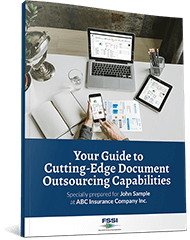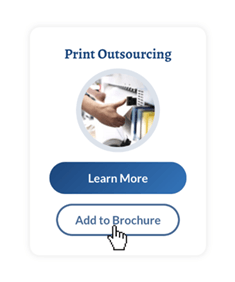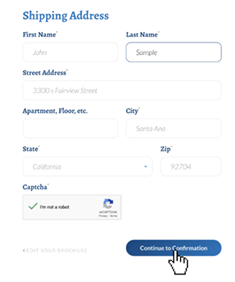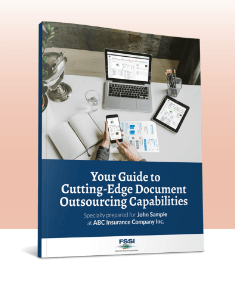Customer Experience and Engagement, Paper, Sustainability
Myth Vs. Fact: Debunking the Paperless Society

Choosing Between Paper and Digital: Understanding Consumer Preferences
Contrary to popular belief, the complete transition to a full paperless society is not always welcomed by consumers. A large percentage of people wish to retain the flexibility of paper-based, postal, and electronic communications. As North America becomes more digital every day, there was the assumption that digital would completely replace paper. However, research shows that paper still has a place in today’s society. Not only that, but many people want to be able to choose their preferences. There are some documents that many still preferred to be delivered via a printed format. This is especially true for critical communications. For important financial documents, many still prefer print over electronic communications.
In our Myth Vs. Fact blog series we look at several misconceptions about the print and packaging industry. In this blog post, we are talking about a paperless society. Do the majority of people really want all of their communications sent electronically? Or is print still a respected medium.
Myth #7: People want to switch to digital communications and are ready for a paperless society.
The Fact: Many consumers value paper-based and mail-delivered communications more than their digital counterparts
“You’ve Got Mail!” isn’t quite the exhilarating experience it was when email first came out. The vast majority of direct messaging on the internet is known by its more familiar name, spam. Marketers have figured out that the cheapest way to send documents is also the least effective.
Survey Results About Paper and Traditional Printing
- 70% of Americans, including 69% of 18- to 24-year-olds, say they prefer to read print and paper communications rather than reading from a screen. – Two Sides, 2011
- Millennials overwhelmingly say they prefer paper. In fact, 60 out of 66 students preferred paper over computers and mobile devices when studying. It is often thought that this generation of students may fully adapt wholly to this new technology. However, the truth is that nearly everyone still had a preference for paper. Some even said that they felt they performed better when reading on paper rather than on a screen. – Subrahmanyam, K. et al., 2013
- 87% of adult Americans agree that “The main reason companies want to shift customers to electronic delivery formats is to save money, not to be environmentally responsible. – Infotrends, 2013
- Not everyone is computer savvy or has access to a computer. An integrated marketing strategy that includes both print and online components spans preferences and generations, allowing all to get the message. – Verso Corporation, 2015
- 81% of parents believe it is “very important” that their child read print books, citing the importance of print’s unique sensory and tactile experience. – Zickuhr, K., 2013
- “Research shows that consumers value the physical mailpiece as a record-keeping tool and reminder to pay. – USPS, Office of Inspector General, 2015
- 89% of adult Americans believe that “Shifting customers/clients to online-only documents disadvantages some groups, such as the elderly, disabled, low income, and poorly educated.” – Infotrends, 2013
What to Expect Next in the Environmental Paper Series (8 of 8)
You are reading part 7 of 8 of the Myths Vs. Facts About Paper, Printing, and the Environment series. To view the full series, please read Myth vs. Fact Part One: The Paper and Packaging Industry is Destroying Forests.
Is paper-based packaging wasteful and unnecessary? Find out in the next installment of the Environmental Paper Series. Check back to follow this series or explore more blog posts.
FSSI
FSSI is a national, WBE-Certified document outsourcing company. The company was among the first print-mail outsourcing companies to integrate sustainability practices into regular business operations. We have been providing electronic messaging and hosting for over 20 years. Almost all our data comes to us electronically. We allow our clients to tell us their customers’ preferences when it comes to delivery channels. FSSI has also recycled or responsibly disposed of tons of reusable waste including paper, wooden pallets, electronics such as computer monitors, and other office equipment. For its work in reducing energy consumption, the company earned Trane North America’s “Energy Efficiency Leader Award.” FSSI also participates in the Carbon Disclosure Project (CDP), keepers of the world’s largest corporate emissions and climate change database, and recognized leader in greenhouse gas reporting. Visit the sustainability practices page to learn more about its ongoing commitment to environmental stewardship.
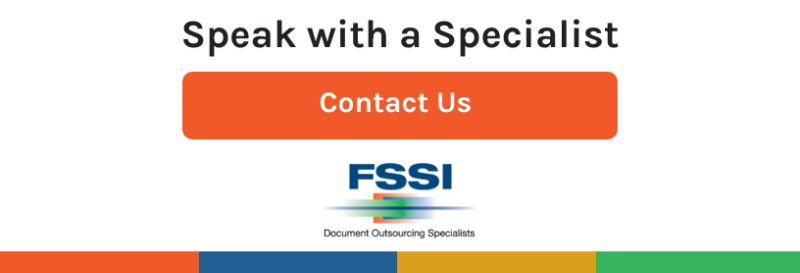
Sources:
Two Sides U.S., Inc. (2013). Print and Paper Myths and Facts [Brochure]. Author. Retrieved from http://www.twosidesna.org/
